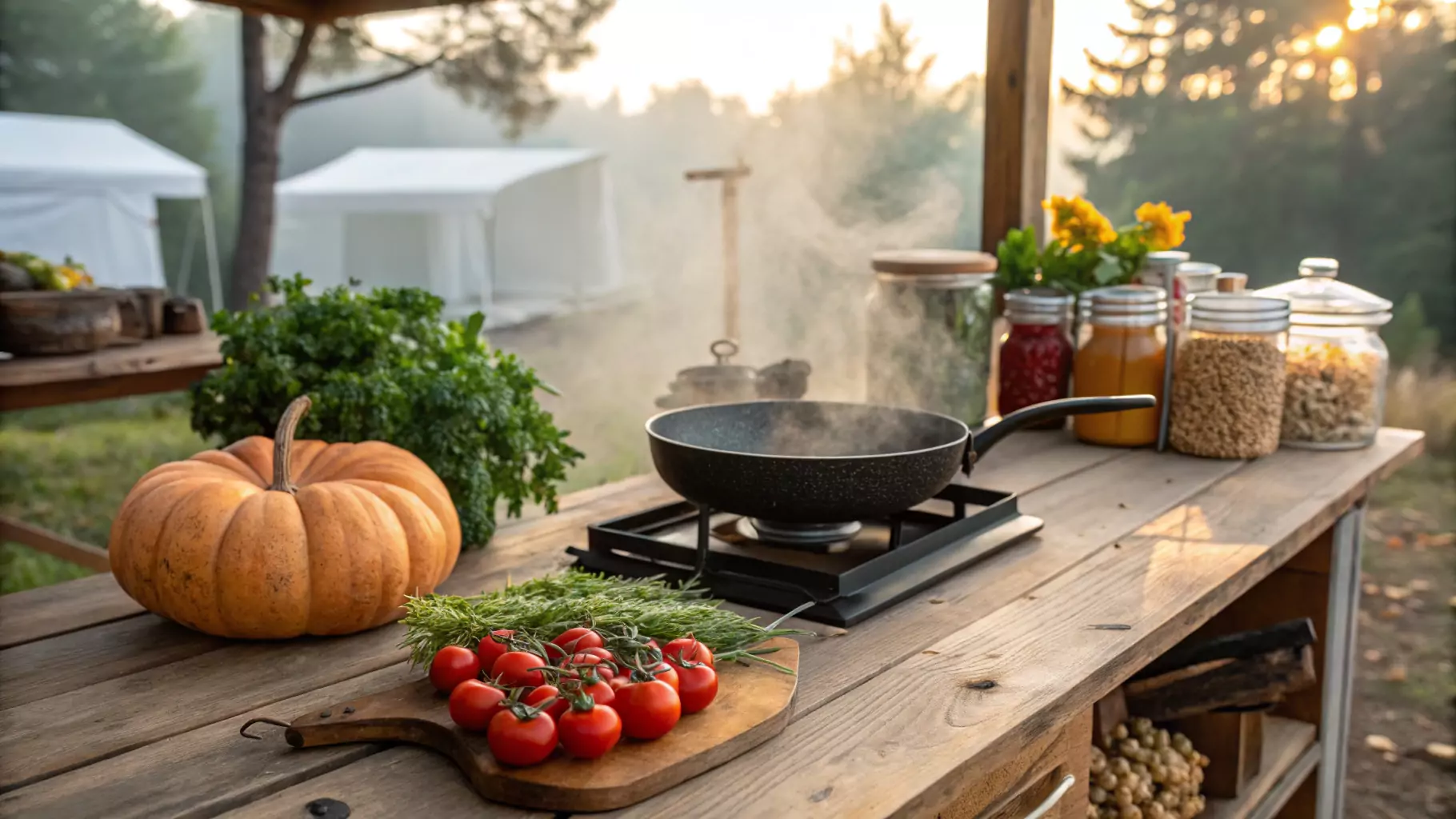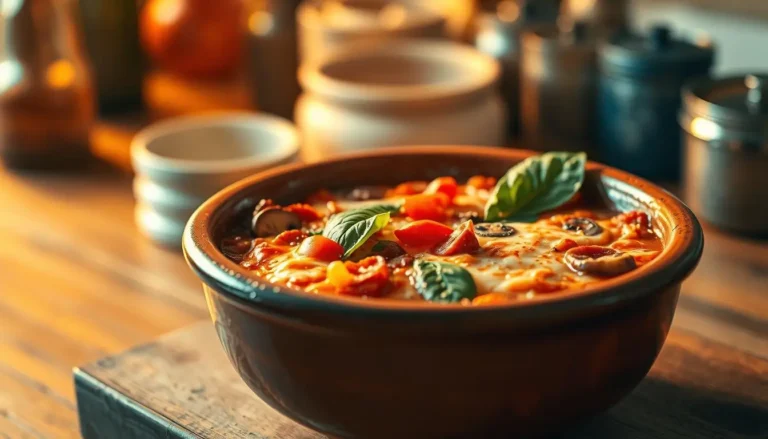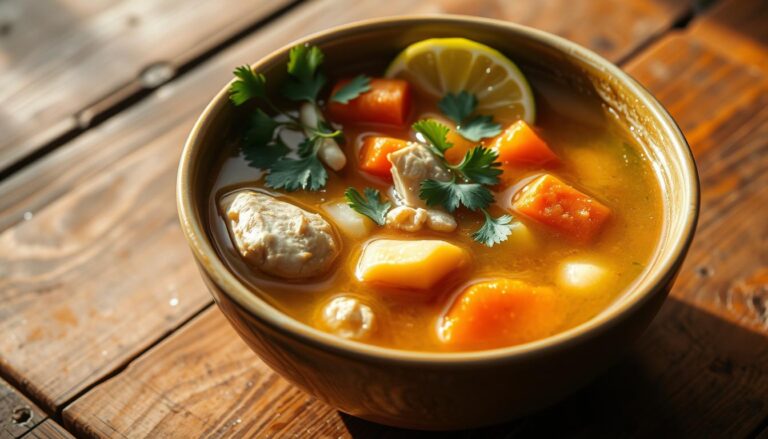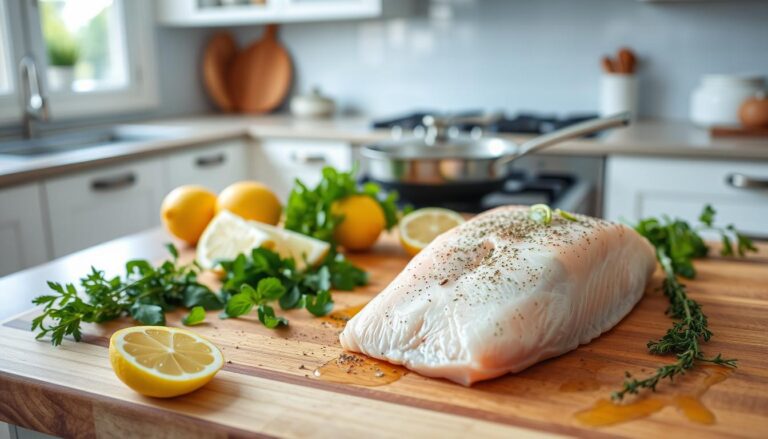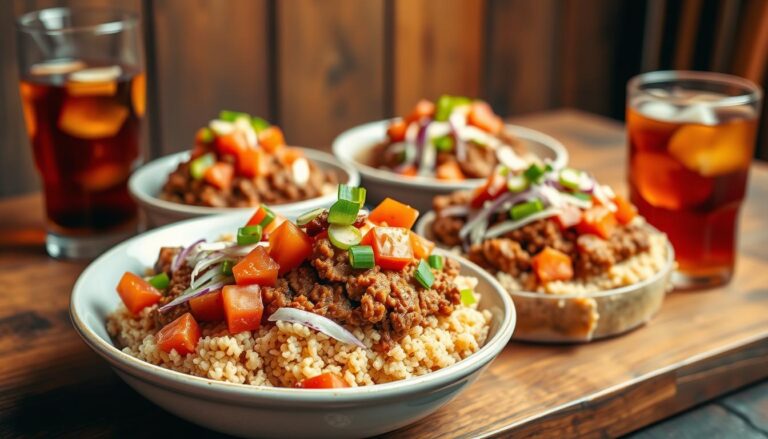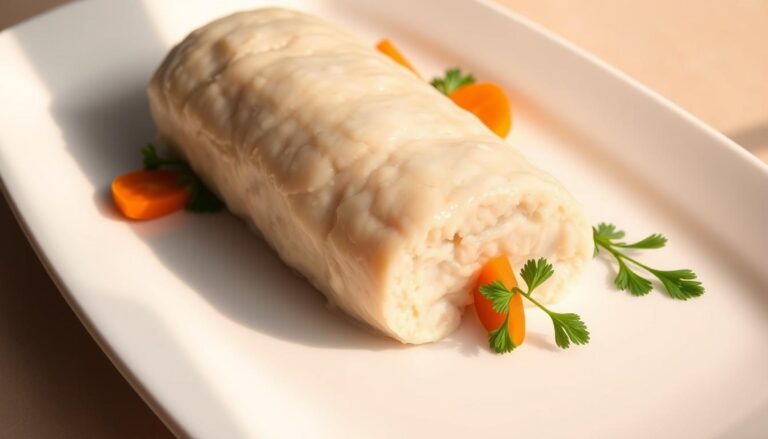Healthy Camping Meals: Easy & Nutritious Recipes for Outdoor Adventures
Table of Contents
Healthy Camping Meals for Your Outdoor Adventure
The wilderness is calling, and your stomach wants more than trail mix. Healthy camping meals go beyond mere survival. They turn your outdoor adventure into a culinary journey that feeds your body and soul.
Picture this: sitting by a campfire, enjoying a meal that boosts your energy for hiking or exploring. These meals provide more than just nourishment—they elevate your outdoor experience.
Healthy camping meals are not just convenient. They’re a smart way to get the nutrients you need while enjoying nature. Whether you’re a casual camper or a seasoned backpacker, your food choices can make or break your trip.
This guide will change how you think about eating outdoors. You’ll learn about protein-packed meals and lightweight, nutritious options. Get ready to discover delicious, simple, and healthy meal ideas that will take your camping to the next level. For more similar recipes, check out Our Flavors.
The Importance of Healthy Eating While Camping
Outdoor nutrition is key to a great camping trip. Your body needs the right fuel to perform well in nature. The right meals can make your adventure unforgettable.
Proper nutrition is your best ally in the wild—what you eat directly impacts your energy, stamina, and overall well-being.
Fueling Your Body for Outdoor Activities
Being active while camping requires thoughtful nutrition. Plan your meals with foods that give you lasting energy. Here are some tips for great outdoor nutrition:
- Choose calorie-dense foods like nuts and seeds
- Pack lightweight, high-protein options
- Include complex carbohydrates for long-lasting energy
- Prioritize whole food sources
Maintaining Energy Levels
Keeping your energy up is vital for hiking, setting up camp, or exploring. Strategic meal planning helps prevent fatigue and maintains your physical performance. Aim for a balanced diet with:
- 45% carbohydrates
- 30% healthy fats
- 20% protein
Supporting Your Immune System
Include foods in your outdoor nutrition that support immune health. Fresh fruits, vegetables, and nutrient-rich ingredients protect your body. Staying hydrated and eating vitamin-packed meals keeps you healthy in different environments.
Remember: Your food is your fuel, especially in the great outdoors!
Planning Your Camping Menu
Getting ready for a camping trip means planning your meals carefully. Cooking over a campfire requires thoughtful planning to ensure meals are tasty, convenient, and nutritious. Your food choices can really make your camping trip special, so let’s get into making the best camping menu.
Considerations for Meal Prep
When cooking outdoors, pick recipes that make your life easier. Here are some tips:
- Choose recipes using only one piece of cookware
- Select quick-cooking ingredients for efficiency
- Prepare meals partially or fully in advance
- Prioritize minimal cleanup options
Balancing Nutrition and Taste
Making meals that taste great and are good for you is key. Mix protein, complex carbs, and healthy fats to stay energized.
| Meal Type | Nutrition Focus | Example Recipe |
|---|---|---|
| Breakfast | Protein + Complex Carbs | Mountain Breakfast Skillet |
| Lunch | Lean Proteins | Veggie Dogs on Whole Wheat Buns |
| Dinner | Balanced Macronutrients | One-Pot Chili Mac |
| Snacks | Healthy Fats | Energy Bites with Dates |
Creating a Grocery List
Your grocery list should have ingredients that are good for you and can be used in many dishes. A tip: choose items that can be used in several meals to save space and add variety.
- Proteins: Canned beans, pre-cooked chicken, tofu
- Grains: Instant oatmeal, whole wheat tortillas
- Vegetables: Pre-chopped or freeze-dried options
- Snacks: Trail mix, energy bars, dried fruits
Easy Healthy Breakfast Ideas
Start your outdoor adventure with tasty and healthy breakfasts that are easy to make. Camp meal prep can make your morning better, giving you energy for hiking and exploring.
Breakfast is key when you’re outdoors. Choose meals that are quick, full of nutrients, and easy to enjoy.
Overnight Oats Variations
Overnight oats are great for quick, healthy breakfasts. Make them before you go to save time at the campsite.
- Apple-spiced oatmeal with flax, chia, and hemp seeds
- Maple and dried raspberry granola mix
- Coconut and cinnamon overnight oats
Healthy Breakfast Burritos
Breakfast burritos are a protein-rich start. Make them before you go or cook them at the campsite.
- Sweet potato breakfast hash with chorizo
- Camping breakfast sandwich with avocado and egg
- Chilaquiles-style breakfast burrito (prepared in under 30 minutes)
Fruit and Yogurt Parfaits
Make light, refreshing breakfast parfaits. They’re easy to make and full of nutrients.
| Parfait Ingredient | Nutritional Benefit |
|---|---|
| Greek yogurt | High protein content |
| Fresh berries | Antioxidants and vitamins |
| Granola | Crunchy texture and added fiber |
Plan your camp meal prep ahead for tasty, healthy breakfasts. Pack light, non-perishable items and use portable cooking gear for easy meals.
Nutritious Lunch Options
It’s easy to make healthy lunches while camping. With a few smart tricks, you can enjoy meals that are both good for you and tasty. A good lunch is key to keeping your energy up during outdoor fun.

When planning your lunch, choose foods that are easy to carry and full of protein. Look for options that are quick to prepare but still taste great.
Quinoa Salad with Veggies
Quinoa is a great camping food hack because it’s nutritious and easy to cook. This grain is packed with protein and cooks fast. Here’s a simple recipe to try:
- Pre-cook quinoa at home
- Mix with diced fresh vegetables
- Add a light vinaigrette dressing
- Pack in sealed containers
Whole Wheat Wraps with Lean Proteins
Wraps are a fantastic camping food hack for quick, healthy lunches. Mix and match to create tasty meals with:
- Whole wheat tortillas
- Lean proteins like grilled chicken or turkey
- Fresh vegetables
- Lightweight spreads or hummus
Vegetable and Hummus Snack Packs
For a simple, no-cook lunch, pack veggie and hummus combos. These snacks give you quick energy and important nutrients without needing to cook.
Pro tip: Use small, sealable containers to keep ingredients fresh and prevent crushing during transport.
Satisfying Dinner Recipes
Your camping dinner doesn’t have to be boring or bland. Trail snacks are great, but at night, you’ll want hearty, delicious meals. These meals fuel your outdoor adventure. We’ve found some tasty recipes that are easy to make and full of nutrition.
Preparing meals at your campsite can be fun and easy. The trick is to pick recipes that cook fast but taste great. Your trail snacks can help make these meals even better, keeping you energized all night.
Grilled Chicken with Veggies
Grilled chicken is a protein-packed meal perfect for campers. A simple marinade can make your chicken taste amazing. Here’s a quick recipe to try:
- Marinate chicken in olive oil, garlic, and herbs
- Grill over campfire for 6-8 minutes per side
- Serve with grilled vegetable skewers
One-Pot Pasta Dishes
One-pot meals are a camper’s dream. Minimal cleanup, maximum taste. Our favorite is a one-pot sausage and basil pasta that’s ready in minutes:
- Use whole grain pasta for added nutrition
- Add pre-cooked sausage for protein
- Mix in fresh basil for authentic Italian flavor
Campfire Veggie Foil Packs
Foil packets are the ultimate camping dinner solution. They’re easy to make, need little cleanup, and can be tailored to any diet. You can even add trail snacks to these versatile packets.
- Combine your favorite vegetables
- Add protein like chicken or tofu
- Season with herbs and spices
- Wrap in aluminum foil and cook over campfire
Great camping meals are about being creative and simple. Give these recipes a try and turn your outdoor meals into unforgettable culinary moments!
Quick and Healthy Snacks
Exploring the outdoors is more fun with the right snacks. Snacks keep your energy up while hiking, climbing, or just relaxing. They’re key to enjoying your time in nature.

Choosing the right snacks is all about packing smart. Look for foods that are light, easy to make, and full of nutrients. Dehydrated foods are great for campers who want tasty, healthy snacks.
Trail Mix Combinations
Trail mix is a great snack because you can make it your own. Here are some protein-rich mixes:
- Classic blend: Almonds, sunflower seeds, dried cranberries
- Protein powerhouse: Pumpkin seeds, beef jerky bits, dark chocolate chips
- Sweet and salty mix: Roasted chickpeas, coconut flakes, raisins
Energy Bites Recipes
Energy bites are perfect for quick energy boosts. Here are some easy recipes:
- Oat and Honey Bites: Mix rolled oats, peanut butter, honey, and chia seeds
- Coconut Cacao Balls: Blend dates, nuts, coconut, and cacao powder
- No-Bake Protein Balls: Blend protein powder, almond butter, and maple syrup
Fresh Fruit Choices
Fresh fruits are full of natural sugars and water. Choose fruits that travel well and don’t get bruised easily:
| Fruit | Benefits | Durability |
|---|---|---|
| Apples | High fiber, vitamin C | Excellent |
| Oranges | Hydrating, vitamin C | Good |
| Bananas | Potassium, quick energy | Moderate |
Keep your snacks in sealed, light containers. This keeps them fresh and protects them during your trip.
Hydration Tips for Campers
Staying hydrated is key when exploring the outdoors. Your backpacking meals should include smart hydration tips. This keeps you energized and healthy on your adventure. Drinking enough water supports your body’s performance and prevents dehydration risks.
Why Hydration Matters
Outdoor activities require more from your body, increasing water needs. Backpackers face unique hydration challenges, especially during intense hikes or camping trips. Your water needs change based on:
- Environmental temperature
- Altitude
- Physical activity level
- Individual body composition
Recommended Hydration Strategies
Experts say drink at least 1 liter of water during a day hike. Your backpacking meal ideas should include lightweight, hydrating solutions. These should be easy to prepare and carry.
| Hydration Option | Benefits | Portability |
|---|---|---|
| Water filtration system | Provides clean drinking water | Lightweight and compact |
| Electrolyte powders | Replenishes minerals | Easy to pack |
| Herbal tea packets | Adds variety to hydration | Minimal weight |
Keeping Water Cold and Fresh
Keeping water cool during camping can be tough. Insulated containers are your best friend for keeping drinks refreshing. Consider using:
- Vacuum-sealed water bottles
- Cooling sleeves
- Freeze-resistant water containers
By focusing on hydration in your backpacking meal ideas, you’ll have a safer, more enjoyable outdoor experience.
Cooking Equipment for Healthy Meals
When planning your camping adventure, picking the right cooking equipment is key. It makes all the difference in your camp stove recipes. The right gear lets you cook delicious, healthy meals outdoors.
It’s important to choose cooking equipment that’s both versatile and lightweight. This way, you can enjoy healthy meals without carrying too much. Your gear should be compact, durable, and efficient.
Essential Gear for Camp Cooking
Experienced campers know that quality cooking equipment can change your outdoor dining. Here are the top camp cooking essentials:
- Stanley Even-Heat Camp Pro Stove (Overall Score: 81)
- Excellent cooking performance
- Durable stainless steel construction
- Weighs 8.2 lbs
- Lodge Cast Iron Combo Cooker (Overall Score: 77)
- Exceptional cooking performance
- Unmatched durability
- Versatile for various camp stove recipes
Lightweight Cooking Options
For backpackers and minimalist campers, lightweight cooking gear is a must. The Snow Peak Ti-Mini Solo Combo 2.0 is a great choice:
- Weighs only 0.4 lbs
- High packability score
- Made from lightweight titanium
Eco-Friendly Utensils
Choose sustainable cooking tools to reduce your environmental impact. Look for reusable utensils, biodegradable options, and multi-purpose cookware. These help minimize waste while you cook your camp stove recipes.
Pro tip: Invest in quality, versatile cooking equipment. It should handle multiple camp stove recipes and withstand outdoor conditions.
Post-Camping Meal Prep
Your camping food journey doesn’t stop when you get home. Use leftover ingredients to make tasty meals that keep the camping spirit alive. This way, you can reduce waste and enjoy the flavors of your trip again.
Begin by checking what ingredients you have left from your camping trip. Leftover grilled veggies can be great in salads. Proteins like chicken or shrimp can be used in quick dinners. The skills you learned camping can help in your home cooking.
Think about planning meals that are simple and healthy, like you did while camping. Freeze your favorite camping dishes for easy meals on busy days. This can lead to healthier eating habits even after your camping trip.
The key to camping food – nutritious and easy meals – can stay with you. Keep the creativity and efficiency from your camping trip. This way, you’ll enjoy healthy, tasty meals that remind you of your outdoor adventures. Check out Our Flavors for Healthy Camping Meals for Your Outdoor Adventure.
FAQ for Healthy Camping Meals for Your Outdoor Adventure
How can I ensure my camping meals are both nutritious and lightweight?
Choose dehydrated foods and lightweight proteins like dried meats and nuts. Use ingredients like quinoa, chia seeds, and powdered milk. These pack a lot of nutrition without adding much weight.
What are some easy meal prep techniques for camping?
Pre-measure ingredients into sealed bags. Prepare overnight oats or energy bites before you go. Use vacuum-sealed packaging and pick recipes that need little cooking.
Effective meal planning is essential for enjoyable camping cuisine.
How do I keep food safe and fresh while camping?
Use coolers with ice packs and pack perishables in sealed containers. Keep raw and cooked foods separate. Use a food thermometer to ensure meat is cooked right.
What are some vegetarian camping meal options?
Try plant-based proteins like beans, lentils, tofu, and quinoa. Make foil packet veggies, veggie wraps, and trail mix. One-pot pasta dishes are also great and easy to make.
How much food should I pack for a camping trip?
Plan for 2-3 pounds of food per person per day. This is more for all the outdoor activities. Don’t forget extra snacks and think about how long and active your trip will be.
What cooking equipment is essential for healthy camping meals?
Bring a portable camp stove and lightweight cookware like a cast iron skillet. Also, take collapsible water containers, multi-tool utensils, and reusable containers. This makes cooking easier and more efficient.
How can I maintain proper hydration while camping?
Drink water often, aiming for 2-3 liters a day based on how active you are. Bring water filters and electrolyte-rich drinks like coconut water. Use insulated bottles to keep drinks cold and try herbal tea for something different.
Are there gluten-free camping meal options?
Yes! Choose gluten-free grains like quinoa, rice, and corn-based products. Pack gluten-free wraps and make rice-based dishes. Many recipes can be made gluten-free.
How do I store food to prevent wildlife encounters?
Use bear-proof containers or hanging food bags. Store food away from your campsite. Seal all food in airtight containers. Never keep food in your tent. Follow local food storage rules.
What are some no-cook meal ideas for camping?
Try no-cook meals like overnight oats, pre-made sandwiches, and trail mix. Energy bars, hummus with veggies, nut butter packets, dried fruit, and canned proteins are also good. These are quick, nutritious, and easy to prepare.
Best Healthy Camping Meals for Your Outdoor Adventure
Savory Delight: Perfect Healthy Camping Meals!
Heading into the great outdoors doesn’t mean you have to sacrifice nutrition for convenience. These healthy camping meal ideas are simple, packable, and full of flavor—fueling your adventure without weighing you down. From hearty breakfasts to satisfying dinners, these meals will keep you energized and happy around the campfire.
1. Campfire Veggie Foil Packets
Easy, customizable, and nutrient-packed.
Ingredients:
- Bell peppers, zucchini, mushrooms, onions
- Olive oil
- Garlic powder, Italian seasoning, salt, pepper
- Optional: chickpeas or tofu for protein
Instructions:
Chop veggies, toss with oil and seasonings, and wrap in foil. Cook over campfire coals or on a grill for 15–20 minutes.
2. Overnight Oats in a Jar
Perfect for no-cook mornings.
Ingredients:
- Rolled oats
- Almond milk or other plant-based milk
- Chia seeds
- Honey or maple syrup
- Berries or sliced bananas
Instructions:
Combine ingredients in a jar and refrigerate overnight in your cooler. Enjoy cold or warm up over a low fire.
3. Grilled Chicken and Quinoa Bowls
Lean protein and whole grains for refueling.
Ingredients:
- Pre-cooked quinoa
- Grilled chicken strips
- Cherry tomatoes, cucumber, spinach
- Lemon juice and olive oil for dressing
Instructions:
Pack components separately and assemble when ready to eat. Serve warm or cold.
4. Turkey and Veggie Skewers
Low-fat and packed with flavor.
Ingredients:
- Ground turkey or turkey sausage
- Bell peppers, onion, cherry tomatoes, zucchini
- Olive oil and your favorite seasonings
Instructions:
Form turkey into mini meatballs or slice sausage. Thread onto skewers with veggies and grill over medium heat for 10–15 minutes.
5. Sweet Potato and Black Bean Tacos
Vegan, hearty, and high in fiber.
Ingredients:
- Roasted sweet potatoes (cubed)
- Canned black beans (rinsed)
- Corn tortillas
- Avocado, lime, and cilantro
Instructions:
Reheat sweet potatoes and beans over fire or camp stove. Load into tortillas and top with avocado, lime juice, and cilantro.
Tips:
- Prep ingredients ahead of time and store in sealed containers.
- Use a cooler with ice packs to keep fresh items safe.
- Bring plenty of water and simple seasoning blends to enhance flavor.
With these wholesome meals, you’ll feel nourished, energized, and ready to take on every hike, paddle, and starry night. Happy camping!

